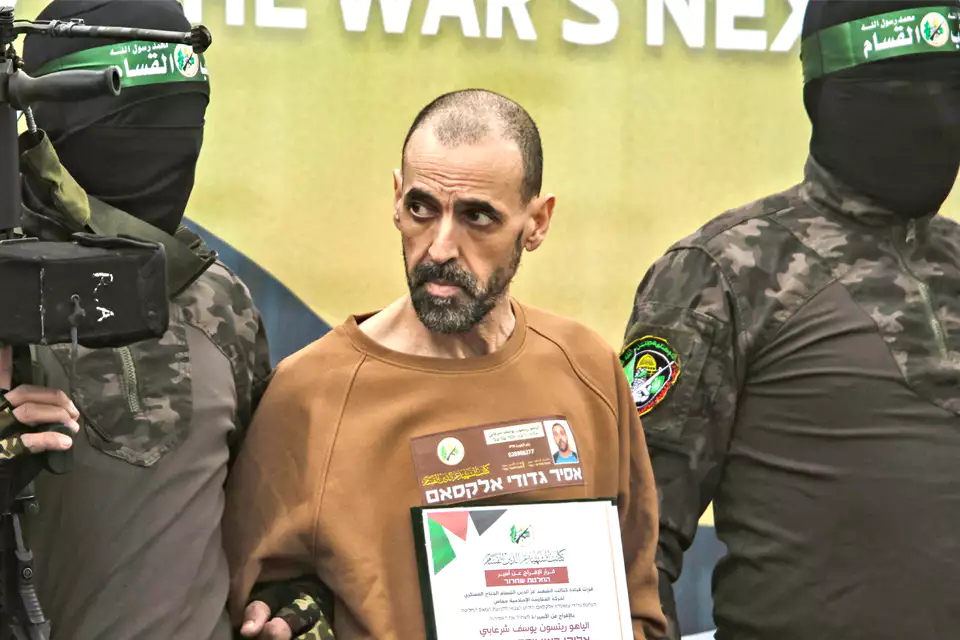“I Chose to Survive”: Eli Sharabi Reflects on 471 Days in Gaza and the Family He Lost
A former Israeli hostage reflects on his 471 days in Hamas captivity, sharing his resilience and grief over the loss of his family in a new memoir. His story highlights the ongoing trauma of survivors and the urgent need to free remaining captives in Gaza.

Eli Sharabi, a survivor of 471 days in Hamas captivity in Gaza, shared his harrowing journey in an exclusive interview yesterday, coinciding with the release of his memoir, Kidnapped. Speaking from a friend’s apartment in Herzliya after returning from advocacy trips in Mexico and the U.S., the frail yet determined Sharabi reflected on his survival and the devastating loss of his wife, Lian, and daughters, Noya and Yahel, murdered by Hamas at Kibbutz Be’eri on October 7, 2024. “The sadness will follow me everywhere, but alongside life, not in its place,” he said, embodying a resolve that inspires many, though he humbly deflects praise. “I hear words like ‘inspiration’ and ‘hero,’ but I don’t understand them. The real heroes are recovering at Tel Hashomer. I didn’t choose to be kidnapped; I chose to survive.”
Sharabi, who battles health issues post-captivity, maintains a rigorous routine of daily exercise, Pilates, and global lectures to raise awareness about the 58 hostages still held in Gaza. “My days are packed lectures, meetings, writing the book,” he said, noting the trauma he witnesses in audiences: “They’re not post-traumatic; they’re still in trauma.” Despite enduring what his psychologist calls “multi-trauma,” Sharabi shows no signs of PTSD. “She asked, ‘What’s broken? You’ve been through hell, yet you don’t have a quarter of post-trauma,’” he shared. “I’m an outlier among returned captives.”
He avoids dwelling on anger, saying, “Anger doesn’t move me forward. Will it bring back my daughters? My wife?” Yet, regret haunts him over a decision not to fight back in their safe room to protect his family, believing it might save them. “If I’d known this would be the outcome, I’d have fought,” he admitted, eyes welling up. “I torment myself over it.” Sharabi channels grief privately, visiting his family’s graves after Passover to mourn briefly before moving forward. In the full interview, to be published in Shishabat, he discusses government failures, his bond with fellow hostage Alon Ohel, and his hopes for new love, all while advocating for Israel’s healing and the hostages’ return.